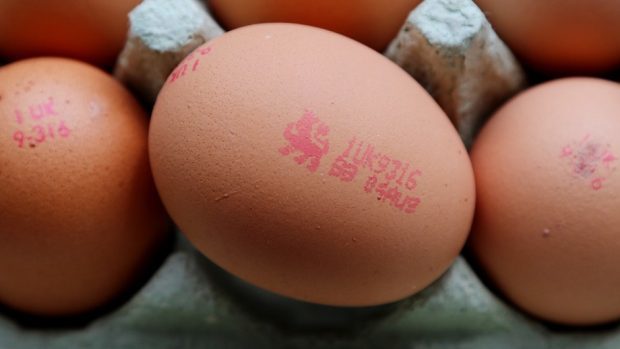Scottish egg producers are coming to terms with the likelihood that all production from caged hens will be phased out by the industry within a decade.
Free-range and barn egg production are expected to be the only options considered by major retailers in future following Tesco’s announcement that it is to stop sourcing eggs from caged – or colony – hens by 2025.
Scotland’s biggest egg producers, Glenrath Farms, manage two million hens just south of Edinburgh and are major suppliers to Tesco and other major retailers.
Managing director, Ian Campbell said the company’s philosophy was to supply customers with what they wanted and he revealed his business had begun to make changes.
“As a company we’re well on the way to converting from colony production to free-range. In 2012 we were 50/50 but now we’re at 70% free-range and 30% colony,” he said.
In a statement Tesco said it had made the decision to stop selling eggs from caged birds following a detailed review of its egg sourcing strategy which included consultation with suppliers, industry experts and other key stakeholders. It is widely expected that other retailers will adopt the same policy.
Industry attention is now turning to whether producers will be rewarded for supplying the more expensive free-range eggs. Suppliers say free-range costs an extra 20-30p per dozen to produce over caged or colony birds.
NFU Scotland (NFUS) poultry policy manager, Penny Johnston said the big question was whether retailers would pass on the additional costs of producing free-range eggs to their customers.
“Producers should not have to shoulder the extra costs. We want to see the detail of how Tesco aims to achieve its targets and how the company is going to work with suppliers,” she said. “We also want to ensure it accepts consumers will have to pay for the differential.”
NFUS poultry committee member Robert Thomson said Scottish egg producers had spent £40-50million on installing more welfare-friendly colony cages before old-style battery cages were phased out in 2012.
Mr Thomson added it was essential that switching to free-range production did not make eggs too expensive.
“We have to make sure people continue to use eggs. Families living on the bread line depend on them,” he said.
There are some fears in the industry that retailers will turn to foreign suppliers for cheap, caged eggs in future, but Glenrath’s Ian Campbell does not believe that will happen.
“They won’t go abroad. They want Lion branded eggs,” he said.
“We believe barn eggs [produced by hens housed in barns without access to outdoors] will be the value egg of the future. We are already converting some of our colony sheds to barn production and there will be a gradual changeover.”
